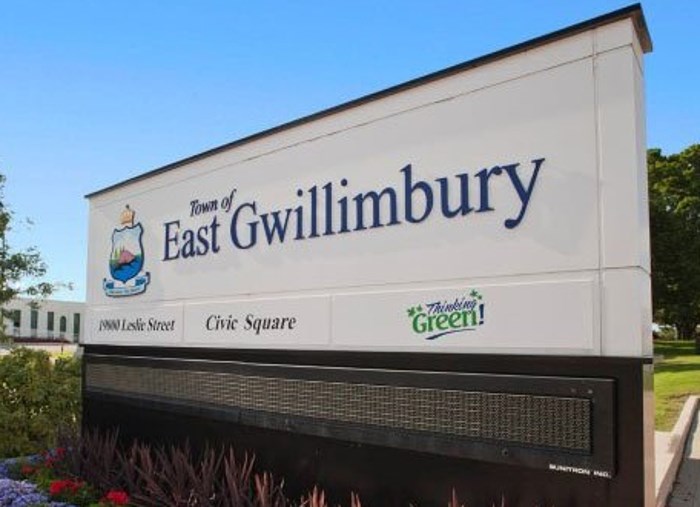When Dr. Kemi Wijesundera moved into the new Telus Health family medicine clinic in downtown Toronto, he quickly found he had one less thing to worry about during consults.
Each of the seven examination rooms in the modern new clinic, which Telus Health has opened under its “MyCare” brand, is equipped with “AI scribe” software that listens to appointments (with patients’ consent) and uses artificial intelligence to summarize the conversations in the standardized medical note form.
Before the patient even gets out the door, the notes from their appointment, including their medical history, as well as any requisitions, prescriptions and special instructions from their doctor, are uploaded to their phone through the Telus MyCare app.
“This is the future of health care,” says Wijesundera, a recent medical school grad and one of six family physicians at the new Telus Health MyCare Union clinic.
Located in repurposed office space on York Street, just south of Union Station, the “digital first” clinic, which had a soft launch in late summer, is now fully operational.
R.J. Johnston / Toronto Star
Source: Ontario College of Family Physicians, Ontario Community Health Profiles Partnership, OurCare Initiative
Toronto Star graphic
Located in repurposed office space on York Street, just south of Union Station, the “digital first” clinic, which had a soft launch in late summer, is now fully operational and facing a unique challenge: at a time when an estimated 516,000 Torontonians are looking for a family doctor, the physicians at the clinic are looking for patients — up to 6,000 of them.
“It gives people who live in the Toronto area a new way to become attached to a family doctor within the public health-care system,” says Chris Engst, vice-president of consumer health for Telus Health, which opened its first two MyCare clinics in Victoria and Vancouver in 2020.
The expansion is part of a broader, global trend that’s seeing private companies taking ownership stakes in the provision of medical services, an area many investors see as ripe with opportunity as wait-lists for family doctors and certain surgical procedures remain stubbornly high.
Unlike its main telecom competitors, Rogers Communications and BCE, which have diversified into sports team and media ownership, Telus is staking a claim on health care.
In 2022, it acquired digital-health provider LifeWorks, formerly Morneau Shepell, for $2.3 billion, as well as buying up a substantial share of the market for electronic medical record (EMR) software in Canada over the last decade. After these and other acquisitions, Telus says it now provides health-care services to some 76 million people in more than 160 countries.

“It’s a regular family practice. The physicians are doing everything from preventative care, immunizations, chronic disease management, acute care, whatever the care needs are of their patients,” says Dr. Alissia Valentinis, a family doctor and medical director of the Toronto MyCare clinic.
R.J. Johnston / Toronto Star
Source: Ontario College of Family Physicians, INSPIRE-Primary Health Care
Toronto Star graphic
Dr. Alissia Valentinis, medical director of the Telus Health MyCare Union clinic, explains that the MyCare model is similar to other private clinics where doctors pay a percentage of their provincial billings to the company running the clinic to cover rent, staff and insurance. In this case, Telus Health manages the clinic while the physicians are independent contractors who are “100 per cent publicly funded.”
“It’s a regular family practice. The physicians are doing everything from preventative care, immunizations, chronic disease management, acute care, whatever the care needs are of their patients,” says Valentinis.
One thing the new Toronto MyCare clinic isn’t: a cramped and stuffy space in a lowrise office complex that some may associate with more traditional medical offices.
A wall covered with plants about six metres long that stretches to the ceiling greets patients in the clinic’s waiting room on the second floor of Telus Harbour, a 30-storey, LEED Platinum office building next to Scotiabank Arena. Floor-to-ceiling windows that look down on York Street illuminate the seven, gleaming-white examination rooms that are equipped with two computer screens, one for virtual consultations and one for medical charting.
One slightly larger examination room can accommodate minor procedures, such as the removal of lumps or bumps. A counselling room featuring cushioned seats offers a quiet space for doctors to have difficult conversations with patients, if necessary, or for breastfeeding moms to find some privacy.
A team of clinical operations support staff assist physicians with administration, pharmacy inquiries, referrals and appointment bookings.
“We’ve been using technology to try and think about, how do you deliver primary care in a unique way which helps to support the needs of patients and also helps to support the needs of the clinicians who work with us?” says Engst.
A key pillar in this quest is the Telus Health MyCare app, a sort of all-in-one platform that not only holds MyCare patients’ electronic medical records, but also allows patients to book same-day or next-day appointments and see physicians at the Union clinic virtually or in-person.
Despite the obvious value for patients in a city starved of family doctors like Toronto, the company’s expansion into the health-care space has not been without controversy.

A living wall of plants about six metres long that stretches to the ceiling greets patients in the clinic’s waiting room on the second floor of Telus Harbour, a 30-storey, LEED Platinum office building next to Scotiabank Arena.
R.J. Johnston / Toronto Star
A few years ago, Telus Health opened but then closed the doors of a family medicine clinic in downtown Toronto, a move it said was a “strategic decision” to “re-evaluate and refine our approach to supporting health-care needs in Toronto.”
“This period of reflection and analysis led to the development and launch of the Telus Health MyCare Union clinic,” the company said in an email. “This new model represents an evolution of our initial concept, incorporating lessons learned and aligning more closely with our goal of improving access to primary care for thousands of Toronto residents.”
In late 2022, British Columbia’s Medical Services Commission, responsible for that province’s public health insurance system, went to court seeking an injunction against a separate Telus Health program, called LifePlus, that the government alleged charged patients thousands of dollars a year for care already covered publicly — an illegal practice under the B.C. Medicare Protection Act.
In April 2023, the commission and Telus Health reached an agreement and clarified processes to better distinguish insured from uninsured services, the company said.
It’s unclear how much, if any, profit Telus is making on the Toronto MyCare clinic, but Engst did say its physicians bill the provincial health system just like any other public health-care clinician, with a portion of those fees going to cover support staff and overhead.
A less tangible benefit for the company could be a treasure trove of potentially valuable data. And that has not gone unnoticed by privacy and public health-care advocates, who question what the Vancouver-based company is doing with its now vast holdings of personal health information.

“Telus owns most of the electronic medical record (EMR) software market in Canada, including the EMR that I use. All of my prescribing information is in my EMR. Where is the data going and are they monetizing it for secondary use?” says Danielle Martin, chair of the Department of Family and Community Medicine at the University of Toronto.
Brian Da Silva photo
Danielle Martin, chair of the Department of Family and Community Medicine at the University of Toronto, says that while the MyCare Union clinic “is what every doctor and every patient wants and deserves” when it comes to physicians being able to focus on being clinicians instead of running an office, she questions why a private company is stepping in to meet demand instead of the public health-care system.
Engst says Telus Health, as both a technology and health-care company, “brings unique capabilities to improve health-care delivery and access.”
“To be clear, the Telus Health MyCare Union clinic supports the public health-care system by providing access to publicly insured services,” he added.
Martin notes that the province already funds models similar to the MyCare clinics through family health teams and community health centres, but these interprofessional teams — which include not only doctors, but also nurses, social workers, dietitians and pharmacists — only cover about 30 per cent of the population.
“This is what creates a market for Telus, because doctors prefer to work in an environment like that and patients prefer to get care in an environment like that,” says Martin, who is also a family doctor.
But she questions what Telus Health does with the patient data it retains.
“Telus owns most of the electronic medical record (EMR) software market in Canada, including the EMR that I use. All of my prescribing information is in my EMR. Where is the data going and are they monetizing it for secondary use?” Martin says.
In an email, Telus Health said it does not sell any data collected by its virtual-care platforms, including MyCare, and is “deeply committed” to the internationally recognized Privacy By Design principles.
Privacy by Design, created by Ontario’s former privacy commissioner Ann Cavoukian, is a system based on seven principles intended to proactively embed privacy into information technology and business systems.
“All data collected from our services are treated as personal health information and handled in accordance with the rigorous laws and best practices applicable to personal health information,” the company said.
Source: Ontario Medical Association
Toronto Star graphic
Back at the MyCare Union clinic, Wijesundera says the technology deployed by Telus Health is what made working at the clinic attractive as a new medical grad who wants to spend more time seeing patients and less time doing paperwork.
“This is potentially going to solve physician burnout,” he says.
The Ontario Medical Association reports that family doctors spend about 19 hours per week on administrative tasks, such as writing notes or filling in patient forms.
“I get more time to look at the patient, have a conversation and it’s not just me on the computer typing. It’s a nice interaction. The patients feel heard as well.”











